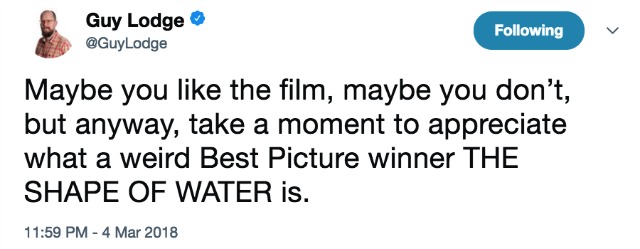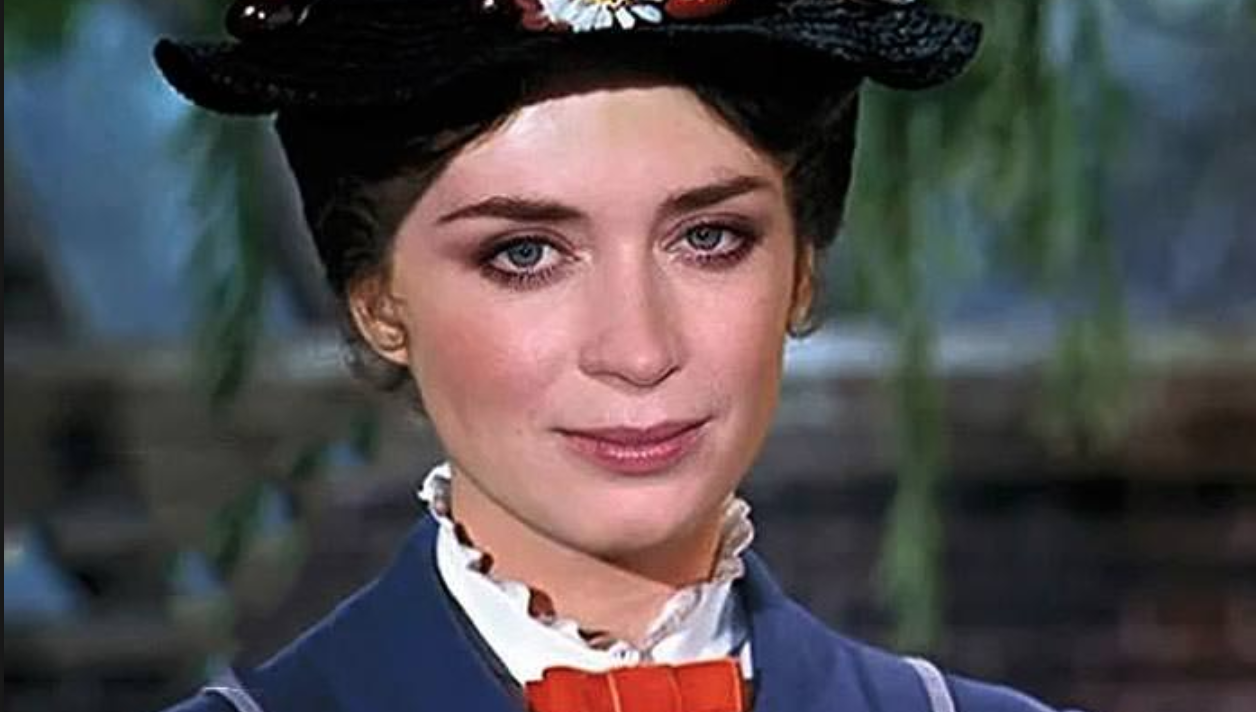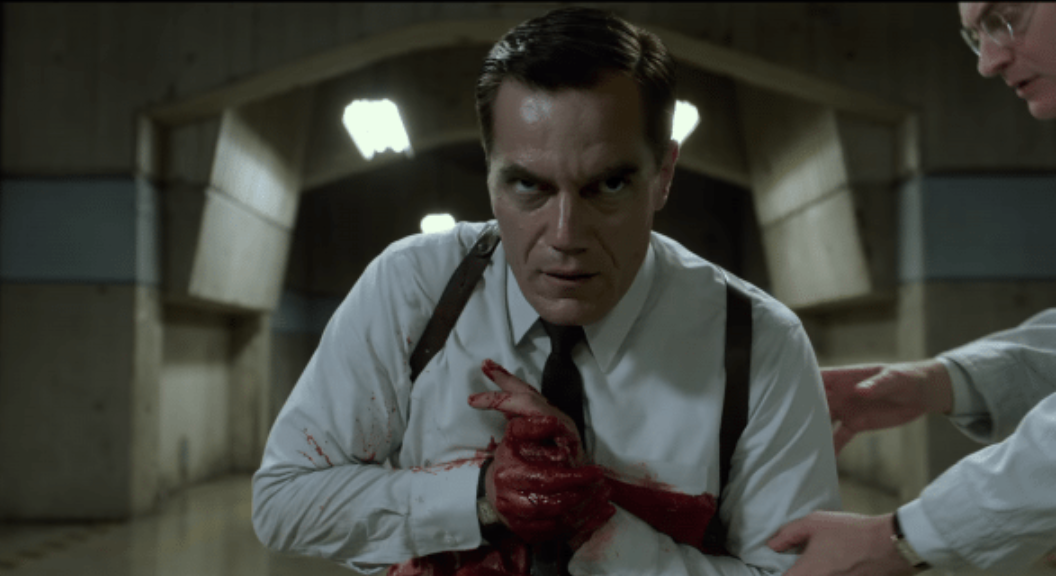I can’t express sincere enthusiasm about a film directed by Rob Marshall, who has given me so much pain over the years. And I’m already having trouble with the idea of the Puerto Rican-descended Lin-Manuel Miranda playing a “lamplighter” (and apprentice to Dick Van Dyke‘s “Bert” from the original 1964 version) in 1930s London. But I love watching Emily Blunt‘s Mary Poppins descend from 5,000 feet in the foggy overhead, and I admire the damp outdoorsy atmosphere conveyed by John Myhre‘s production design and Dion Beebe‘s cinematography. So there’s hope.
Day: March 5, 2018
Speaking Of Oscars
On 10.12.13 I posted about a 1949 film that won Academy Awards for Best Director and Best [Adapted] Screenplay, and was nominated for Best Picture:
Yesterday I watched Fox Home Video’s Bluray of Joseph L. Mankiewicz‘s A Letter To Three Wives (’49), which I first saw…oh, sometime in my teens. Even in that early stage of aesthetic development I remember admiring the brilliant writing and especially the way it pays off.
Nominally it’s a woman’s drama about whose husband (Jeanne Crain‘s, Linda Darnell‘s or Ann Sothern‘s) has run away with sophisticated socialite Addie Ross, who narrates the film from time to time (the voice belongs to Celeste Holm) but is never seen. But that’s just the story or the clothesline upon which Wives hangs its real agenda. For this is primarily an examination of social mores, values and ethics among middle-class marrieds of late 1940s America.
Over and over the film reminds you how long ago this was. Southern is fairly liberated in the sense that she’s the main breadwinner in her household; her husband, played by Kirk Douglas, is a more-or-less penniless schoolteacher. One of the film’s quaint highlights is Douglas’s cocktail party rant against the dishonest and vulgar hucksterism of commercial radio. This was a valid point, I’m sure, from Mankiewicz’s perspective 60-plus years ago, but if Joe could see the world now…
But I’d really forgotten how effective the ending is. It’s partly the surprise admission from Paul Douglas (as Darnell’s wealthy, somewhat crude businessman husband) that it was he and not Craine’s husband Brad (written by Mankiewicz as a bland and patronizing type, and certainly played that way by Jeffrey Lynn) who ran off with Addie. But what really got me is the final bit when Douglas and Darnell hit the dance floor and the camera drops down to the table and suddenly Addie is a spirit of some kind — a spectral force.
All through the film Addie has been the absent “other” and suddenly she’s a spook who tips over a champagne glass and breaks it. A metaphor for disappointment and defeat, sure, but I find it fascinating that Mankiewicz would shoot Wives as a thoroughly dialogue-driven, medium-interior, right-down-the-middle relationship drama and then, at the very last second, change the rules and turn it into Topper or The Ghost and Mrs. Muir. That’s a surprise ending in spades.
Congratulations to Fox Home Video’s Schawn Belston and his restoration team for managing a superb upgrade of this classic. I’ve never seen it look so rich and clean and dynamically alive.
Please, C’mon, Stop it
This morning Awards Daily‘s Sasha Stone declared that Guillermo del Toro‘s The Shape of Water “is one of the best films to win the Best Picture Oscar in two decades. It joins the ranks of the best of the best, like No Country for Old Men, The Departed and The Hurt Locker, and perhaps ushers in a new decade of films that will flourish under America’s sudden turn to the dark side.”
The Shape of Water is a partly gentle, partly porno-violent fairy-tale about loneliness and longing and fish-sex, but it’s a genre film and therefore a curio in the annals of Best Picture winners, and it damn sure isn’t one of “the best of the best.” Sasha is crazy for comparing it to The Departed or No Country For Old Men….good God! The Movie Godz don’t read everything but they read Hollywood Elsewhere, and I can tell you they’ll shriek like banshees when they read her piece. And I mean like Michael Keaton in Beetlejuice when Geena Davis tries to say his name three times: “Eeeeeeeeeee!!!”

The Shape of Water is the only creature fantasy to seriously contend for a Best Picture Oscar, much less win one. (Right?) It’s a trans-species love story that cares about the interior lives of marginal people and whatnot, but I’m writing about it now because it’s first and foremost an aberration — a film that won largely because of the New Academy Kidz and their clenched determination to include genre films in the realm of Best Picture consideration, and in so doing shake things up.
I’ve long disagreed with the Academy prejudice that comedies can’t be regarded with the same respect afforded to socially realistic dramas, but there’s no denying that genre films have worked hard for decades at defying general laws of believability and credibility with a kind of “fuck it, we’re a genre movie” attitude.
I’m not talking about scary or horrific films but those which deal their cards according to pulpy, fast-and-loose rules. (Like The Shape of Water.) And I’m saying this, mind, as one who would have completely respected King Kong or Psycho or Val Lewton‘s Cat People or The Night of the Hunter being handed a Best Picture Oscar.
Unlike almost every other Best Picture winner except for six or seven I’d rather not mention, The Shape of Water is more or less indifferent to the world that we’re all unfortunately stuck with, and is a creation that totally resides in Guillermo’s head.
It contemplates nothing except for the eternal condition of loneliness and the need to be loved and the balm of compassion, which we all value. But at the same time it’s not that great because of staggering plot holes and logic flaws. It’s a creature feature that believes in kindness and compassion, yes, and is “completely dominated and in fact saturated with its Guillermo-ness,” as I said last September. But “the best of the best”?
A Remake That Only Elitists Will Want To See?
Variety reported two months ago that Guillermo del Toro and Sunset Gun‘s Kim Morgan are co-writing a remake of Nightmare Alley, a 1947 film noir that even its biggest fans (and they are relatively few in number) would describe as decidedly bizarre if not grotesque.
The handsomely produced 20th Century Fox film starred Tyrone Power as a sociopathic carnival barker who rises and falls in sordid, appalling fashion, and ends up returning to the carnival realm as a geek who bites the heads off chickens.
Stuart Gordon‘s Trailers From Hell assessment sums it up nicely, and I’m all for films that cater to people with perverse tastes in downswirl melodrama. But the original Edmund Goulding-directed film died at the box-office for a reason.
If Guillermo and Kim’s script closely adheres to the 71-year-old Jules Furthman screenplay or to William Lindsay Gresham‘s 1946 novel (which arose from conversations Gresham had “with a former carnival worker while they were both serving as volunteers with the Loyalist forces in the Spanish Civil War”**), look out. At best this will be a film festival darling (Telluride’s Tom Luddy will wet himself) and not much else.

Kim Morgan, Guillermo del Toro prior to last night’s Oscar telecast — I’m getting a Frida Kahlo and Diego Rivera vibe.
“I Am A Moron! Goo-goo-ka-choob!”
There’s a hunger-for-fame virus infecting the populace, and Terry Bryant is the latest victim. This ayehole stole Frances McDormand‘s Oscar last night during the Governors Ball after-party. Bryant posted a Facebook video of himself boasting about winning (““Lookee, baby…this is mine…my team got this tonight”) and smooching the statuette. Then he allegedly tried to use the Oscar to gain entrance to the Vanity Fair after-party, and that’s where he was busted. McDormand reportedly told authorities to let him skate, which I personally interpret as “this guy is insane…this is about mental health…this episode can’t be sufficiently addressed by the criminal justice system.”



